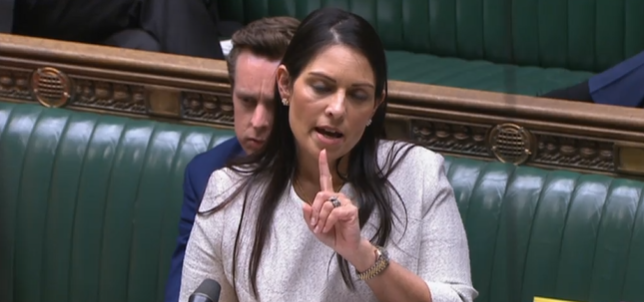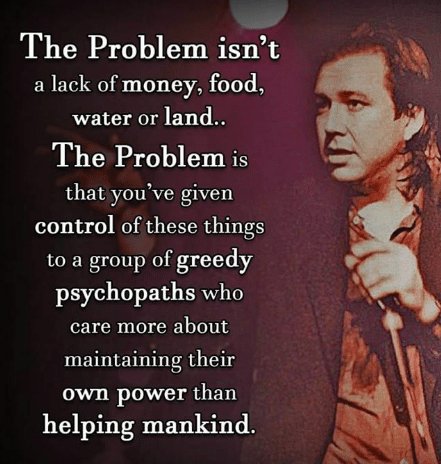
#Thread
I've written elsewhere about the highly contested & important concepts of #nationalism & #patriotism, which in Britain & many other countries, have been successfully appropriated & mobilised by the Right, leaving the Left stumped, floundering, & backed into a corner.
I've written elsewhere about the highly contested & important concepts of #nationalism & #patriotism, which in Britain & many other countries, have been successfully appropriated & mobilised by the Right, leaving the Left stumped, floundering, & backed into a corner.
Nationalism is generally associated with jingoism, xenophobia & distasteful sense of the superiority of one's own country over others. But this isn't strictly what it means to a sizeable proportion of voters, who interpret it more as 'putting one's own country's interests first'.
Similarly, patriotism - the feeling of pride in, devotion to, attachment to, or even love for one's country - is often dismissed by the Left as at best unseemly, & at worst, racist.
Most discussion of nationalism & patriotism on the Left is without nuance & electorally suicidal.
Most discussion of nationalism & patriotism on the Left is without nuance & electorally suicidal.
I understand the objections & have written at length about them. But I like to have my opinions challenged, & I like to shift my views when I encounter persuasive arguments - don't worry, I'm not going to suggest the Left drapes itself in flags & suddenly chant Put Britain First!
The basic widespread framing & dominant argument from the Left is that 'Left nationalism is very rare because finding yourself to be superior for the sole reason that you were born in a certain country makes little sense in Left ideology'.
Similarly, it's argued that those on the Left who identify as patriotic & proclaim love their country generally recognise its flaws (for example the antidemocratic & anti-British attempt to limit protest) & try to improve it instead of demonising those who point out those flaws.
This 2018 article by @NoamGidron has challenged my thinking. It takes an historical look at positive, nuanced, & electorally successful twentieth & twenty-first century left-wing framings of patriotism & even 'nationalism'.
vox.com/platform/amp/t…
vox.com/platform/amp/t…
Noam has extensively researched how across many western & eastern democracies, the declining social status of working class men is significant in that lower social status is highly predictive of support for populist right-wing parties. Most discussion focuses on two explanations:
The economic (forty years of neoliberalism has resulted in rising inequality with less educated working class men having more insecure & low-paid work & less political influence); & the cultural (shifts in national culture & national identity, support for gender equality etc).
It's of course both economic & cultural shifts. People who have experienced a decline in status tend to have little faith in & be alienated from the political system, & most do not vote - but of those who do, the majority vote for right-wing populist (nationalist) parties.
Kenan Malik has a slightly different emphasis from Noam Gidron, but only in that Kenan argues that economic changes for the working class have become framed & understood in cultural terms - hence the 'culture war' & the Left's failure to adapt its rhetoric.
To be clear: the gradual economic & social marginalisation of working class people in Britain & beyond is now understood not primarily in economic terms, but thanks to divisive political & media rhetoric & framing, it's understood & experienced in cultural terms as cultural loss. 

The obvious solution is to make *everyone* feel more valued & included in society & to restore pride, status & respect to all people - including & perhaps especially the less educated, lower status working class - regardless of their individual ethnic or national background.
Anyway, imho, it is possible to r(e)articulate a convincing & powerful left-wing framing of genuine patriotism which avoids the empty, clumsy, & unconvincing efforts of Starmer's @UKLabour, which most voters can see are obvious & patronising attempts to manipulate voters.
Throughout the 20th century, progressives mobilised for fairer societies most successfully when they spoke in the name of national solidarity - rather than focusing exclusively on class-based interests or on abstract notions of justice.
Left-wingers often cite the adage that patriotism is the last resort of the scoundrel — and with good reason. But it is important to also remember that a deep sense of national commitment underpins the egalitarian institutions we hold dear.
Noam Gidron suggests "The left has forgotten the basic political argument that served it so well in the past: that out of the ties that bind together our national communities emerges a deep commitment to the well-being, welfare, & social esteem of our fellow citizens."
What this means is that (regardless of how we account for it), there is a tendency in all societies toward deep & encompassing obligations to those we consider our own, based on a shared sense of membership in a community of fate, based on our shared regional & national identity.
Progressives once knew how to appeal to a common sense of national purpose. In both the UK & US, progressive advocates gained traction when they called for social justice as an expression of “the fairness & solidarity of the national character” - Oxford historian Ben Jackson.
The Beveridge Report appealed not to abstract moral principles but to “peculiarly British” convictions, including “a minimum income for subsistence when wages fail for any reason: a minimum of provision for children, a minimum of health, of housing, of education.”
In the US, the architects of the New Deal justified their attacks on the excessive power of the rich not only as measures designed to benefit the poor, but in the name of the nation as a whole — an attempt to create “a safer, happier, more American America” - F. D. Roosevelt.
In his efforts to reconfigure political institutions in favour of the less well-off, FDR embraced the rhetoric of being anti-ultra-rich - not in the name of sectorial interests but because increasing taxation of the superrich was, in his own words, “the American thing to do.”
Social policies that served people from all walks of life, such as Britain's NHS & Social Security in the US, both reflected & reinforced national solidarity, aligning instead of dividing the interests of low-income & middle-class voters.
The shift of the centre left in the 1990s toward the privatisation of risk, & toward low-paid insecure work & means-tested welfare programs, which stigmatised & singled out those in need of assistance, has likely eroded such sense of cross-class solidarity.
Noam Gidron's main argument that has convinced me to look again at the left's handling of the concepts of patriotism & nationalism is the belief that progressives could & should once again aim to build diverse electoral coalitions based on national solidarity.
Data collected in 34 countries demonstrates that around half of the population in many Western countries fits within what sociologist Bart Bonikowski calls the “liberal national” type - characterised by both strong national pride & an inclusive vision of the national community.
This group expresses a high degree of pride in aspects of the nation-state (eg national sports teams) & perceives national community membership as based on subjective feeling of belonging, which opens the door for successful integration - rather than demonisation - of minorities.
Today, as in the past, progressive appeals to national solidarity can resonate with a broad share of the electorate. Centre-left & more left-wing parties have struggled to fully embrace this strategy in recent years. But imho it is at least worthy of consideration.
We really shouldn't have to rely on non-politicians to be doing the groundwork here, but I was very impressed with this imaginative & important attempt to rearticulate patriotism & nationalism by England manager Gareth Southgate
theplayerstribune.com/posts/dear-eng…
theplayerstribune.com/posts/dear-eng…
As Noam Gidron states: "An emphasis on national solidarity need not, & should not, paper over ideological differences between left & right, nor can it speak to every alienated voter who has defected from the left."
"But it may well speak to many of them, while also attracting voters currently sitting on the sidelines who feel, not without reason, that 'leftist elites' look down on them and their old-fashioned patriotism."
'Embracing an inclusive sense of national pride does not entail adopting the rhetoric or policies of the populist right. Aside from being morally bankrupt, moving closer to the populist right on issues such as immigration is extremely unlikely to increase support for the left.'
"Dyed-in-the-wool xenophobes are likely to prefer the real thing over watered-down versions of nativism, and in any case, the populist right “can always respond to any matching of its offer by simply upping the ante,” as political scientists in Britain have recently put it."
Humanitarian commitments are aimed at relieving suffering at home AND abroad; egalitarian institutions such (eg welfare state) reflect distinctive visions of social justice & are therefore local & bounded. The Left should debate the weight attached to these different commitments.
"National solidarity is not a threat to progressives but, as others have already noted, a potential resource — and one the centre left ignores at its peril. Unlike abstract appeals to global humanitarian concerns, it rests on the solid foundations of strong national attachments."
Gidron concludes: "Unlike narrow class-based appeals, it opens the door to broad electoral coalitions. The progressive challenge of our time lies not in dismissing national pride but in harnessing national solidarity in order to create a fairer, more just society." And I agree.🇬🇧
• • •
Missing some Tweet in this thread? You can try to
force a refresh




















